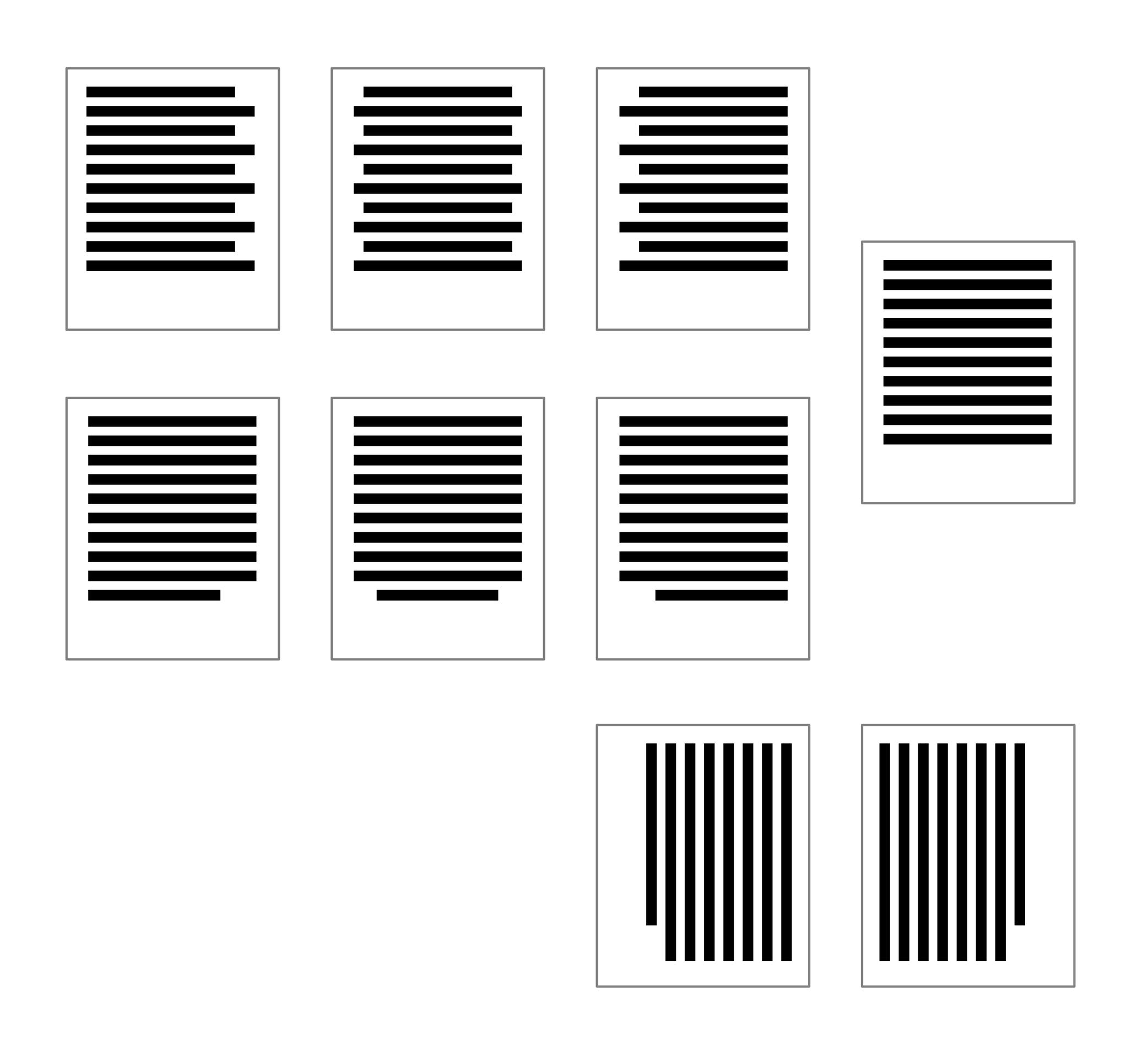Justification

Illustration: Words of Type.
Justification refers to text blocks where all lines are the same length, except, perhaps, for the last lines of individual paragraphs.
HISTORY
In the Middle Ages, many scribes would try to keep the appearance of their manuscripts as neat as possible. Guidelines for the left and the right margins, as well as the spaces between columns, would be scored onto the pages before they began to write lines of text. However, it was virtually impossible to keep the lengths of all lines of handwritten text equal, even with hyphenation (splitting a word across two lines).
When he pioneered Western printing technology, Johannes Gutenberg solved that problem through three methods:
• first, like scribes before him, he would hyphenate words that did not fit entirely on the end of a line.
• second, he manipulated the space between words so that some lines had narrower word spaces and others wider ones.
• finally, his compositors had narrower versions of some letterforms to fit more words onto one line (if and whenever that was possible).
USE IN TYPOGRAPHY TODAY
In digital typesetting, algorithms for hyphenation and justification still split words across two lines and employ flexible word-space widths. However, Gutenberg’s use of multiple widths for individual letters did not catch on.
Inexperienced typographers occasionally use software features that can make some or all characters on a line artificially narrower or employ negative tracking between all characters on a line. These possibilities are both typographic abominations that should never be used.
Instead, users should adjust the hyphenation and justification options in their page-layout software to achieve a better result and add soft hyphens and/or soft line breaks to improve the appearance of their justified texts.
Some other typesetting options (common for scripts written horizontally and from left to right) are centered, flush left/ragged right, and flush right/ragged left.